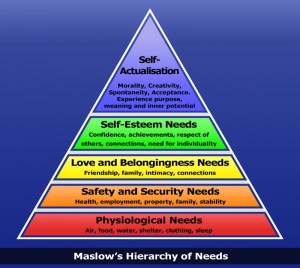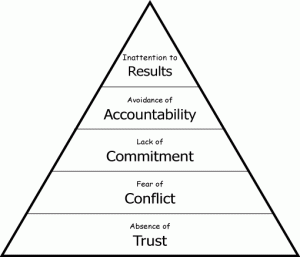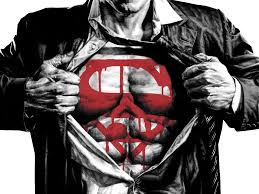
I received a call from a past client a month or so ago, the CEO of a manufacturing company, and I could tell he was very upset. Being the typical busy business owner he jumped right into the reason for the call; “why do star salespeople just leave, no warning, …poof …they are gone , jumped ship, and now what am I going to do?” I asked a few more questions and Tom who had been his top salesperson for years just resigned and announced he will be working for another manufacturer in their industry that has some products that compete with my past client’s company. As we talked, it was clear this was first a big surprise, and CEO’s hate surprises that could interrupt their plan. Second, this experience has caused major unrest throughout the sales and senior management team. Third, he was concerned because Tom had most of their large key customers …What would they think? What has Tom said to them? …Is there a risk in losing their business? Last the CEO had a hard time describing what he was personally feeling, but what heard was; betrayed, hurt, and concerned. “I just can’t believe it, after all Tom and I have been through he just leaves?”He was very concerned about how this exit would impact what should have been a high sales growth year. I agreed to connect with Tom and find out what made him jump ship so abruptly.
In any given year a business will have salespeople come and go. It is the nature of the sales beast. We created a high performance driven culture with a high degree of accountability in the work we did years earlier so it was not unusual to cull the sales herd and this typically resulted in under performing salespeople leaving of their own accord. However, when a sales star, a sales super star, A player in this case, leaves it can be devastating.
Why do sales super stars leave?
I have seen this situation happen at a number of companies so I decided to spend some time in this blog discussing why sales super stars really leave.In my last blog post I shared the results of a survey I did in my various Linked In sales groups and networking with sales stars I have worked with over the years. I reviewed the most common reasons that sales mangers and business owners believe as to why sales leaders leave organizations; money, promotion, boss is a jerk…. I also asked sales super stars why they left past teams or why they would leave their current team.
What company leaders must realize is the reason most sales super stars leave is not “money”, money is one extrinsic measuring stick they use to measure how much your A player intrinsically feels you value their contribution.
Intrinsic needs include feeling valued , trusting those they serve, and appreciated. They also include feeling challenged and learning new things as well as being proud of the work they do and the contribution they are making.
Extrinsic needs are things like base pay, commission, benefits, vacation time, bonuses, expense reimbursement , company car, vacation time policies and so on.
Sales super stars leave when their intrinsic needs are not being met and this is validated by extrinsic conditions.
Keep in mind we are discussing” sales super stars”…these guys and gals who charge into a new market and open new business….they “just make it happen“…when a new product is launched they crush their numbers…your customer satisfaction surveys for them all come back A+….they consistently exceed sales quota…..their profit per sale is higher than the team average….their close rate is 20% greater …..and their cost per sale is the lowest. If you have a hard time determining who your star / A players are, you can find a great tool to do so here. These are the people you dream about finding, hiring and keeping so it should be no surprise when they leave it is often a shock. Sales super stars know how to drive results. In this post I plan to share the real reasons why they leave, actions you or members of your team have done ( or not done) that have asked a sales super star to leave. What I am not discussing are personal life issues that cause a sales super star to leave like needing to care for their children or an elderly parent, or a health concern that makes them have to leave the job.
In Maslow’s hierarchy of needs work he shared the continuum of needs most people have.

The needs start with the basic Physiological needs for things like food, water and so on and graduate to self-actualization needs for things like creativity, spontaneity, and morality to name a few. The ERG theory followed with a simpler model (Existence, Relatedness and Growth). This model is what market leading business owners intuitively think about as they develop their sales cultures and compensation programs. However the disconnect I argue occurs in sales super stars at non market leading companies because business owners think if they take care of basic extrinsic needs their sales stars will be happy. Sales super stars however know their value and are driven by something much deeper and pay is something they know they can earn and expect anywhere. To put it another way, they are good, they know they are good, and they are not worried about being unemployed for long should something occur in their current job that is unacceptable. The threat of a compensation decrease does not scare them into submission like it does average or below average salespeople who have nowhere else to go. Sales super stars know how to help buyers buy and they know if not treated well where they are they can confidently and quickly find new employment to meet their basic needs for food, shelter and so on. These sales super stars have a much greater need to feel valued, trusted, and to trust those they serve with their skills. They also see themselves as winners and must feel they are on and supported by a winning team . To make their value even greater a recent article it shared how the gap between good and great sales people seems to be growing wider…and sales super stars know it.
A better model can be seen from the work of the famous book: The five dysfunctions of a team as shown below.

The reason why this is much more relevant to sales super stars is it is built on a foundation of trust, an intrinsic need. This model was designed to be used with teams of people to create a strong foundation that ultimately leads to best in class performance. In this case I want you to consider the above in the context of a sales super star. Your sales super star is a star at what they do and will be your star as long as there is a foundation of trust. How much do they trust you? How much do they feel valued by and trusted by you? If there is a break in that foundation; intrinsic trust, they will seek extrinsic factors to validate their belief, and when they find them…poof…they just leave.
I hear some of you saying…enough of the Psycho mumbo jumbo…so let me share common scenarios that illustrate why sales super stars actually leave.( and it did not happen in just a “poof “instant)
Scenario One: they left for more money
What you heard was they left for more money…here’s what really happened.
A lack of trust occurrence– they sold something and it had huge quality issues, they are asked to sell a new product that is not ready to go to market yet, they are given an unrealistic goal since they seem to crush their goal every year anyway. They made a large sale and when they receive their paycheck they are informed the compensation plan changed. They made a large and profitable sale and no one said atta boy…
Feeling they are not appreciated – may have been called out in a meeting in front of peers over something that was not their fault, criticized for misspelled words in their monthly report that highlights once again they blew past their sales goals or some other minor issue while they continue to crush their key sales performance indicators.
Validation of feelings of being unappreciated– a change in pay, maybe a change in benefits, a new compensation model, a new expense limit program, take away company credit card asked to use personal credit card and expense reimbursement is very slow, change of sales territory, and a new targeted income model with a capped pay plan (nothing demotivates a sales super star like a cap on compensation).
Put out some feelers about job opportunities…
Poof they just leave…
Scenario two; Left because boss was” a jerk”
What you hear is they left because they thought their boss was “a jerk” a real “ass-kicker”.
Not trusting new boss/ boss kicks ass and provides no help or assistance to help him hit quota- boss lacks product, market and management training, in a recent survey of sales people only 34% of salespeople believed their manager and leaders knew what they were doing, boss believes the beatings will continue until the performance improves. New boss implements micro management tactics and challenges how the sales super star spends their time and who they meet with although they continue to exceed sales performance indicators. Sales star feels he is not trusted, does not trust boss, does not trust where the company seems to be going.
Concerned about the direction of company if they would hire someone like this – they feel a cultural shift, often not an intentional strategic shift. They refuse to be on a team managed by someone who adds no value to growing sales. “Help me hit my numbers or get out of my way.”
No longer trusting ownership and senior leadership- they have to know this is happening right?
Feeling new boss does not appreciate nor value their contribution to the team’s overall sales performance, access to upper management cut off my new boss
Possibly has a run in with boss privately or publicly- new sales managers with low emotional quotients are often intimidated by sales super stars
New boss does not back sales super star with customers or upper management when conflict occurs- new sales manager has strong political experience and plays it safe and fails to address real issues
Sales star loses relationship with owners who in the past have shared how much they valued his contribution – you always had an open door to your team, particularly when you were much smaller , but you have grown and hired people to manage the front line so you can run the business.
Puts out a few feelers
Poof …Leaves team
Scenario three: They left for a “better opportunity”
What you heard was they left for a “better opportunity”.
Quality changes for the worse, product, service, communication, lack of new innovative products, no new sales tools, poor marketing, no leads
Feeling of being disconnected, alone in the market and unable to share all the quality issues that are hurting the achievement of sales results because it is not “politically safe” and they are accused of “just making excuses”
Not trusting the company, what it says, or the products you are selling will do what they are promised to do in your literature
Concerned about personal reputation in market
Missed a sales quota and gets less commission or no commission
Lost a key account to a competitor with new innovative solutions that do not have quality issues
Unresolved product quality issues from past sales sucking them into conflicts when they should be selling new opportunities
Relationship with long term key account strained
Less commission again, had to explain why to their spouse
Put out feelers
Poof…Leaves team
Scenario four; Sales super star got a great offer they could not refuse
What you heard was the competitor made them an amazing compensation offer.
Sales star sees favoritism to under performing sales associate(s) – basically poor results are not addressed and under performance is ignored and politically correctness is rewarded.
Sales Star is financially impacted by poor performance of under performing team member – the group’s sales number are down so everyone suffers, maybe the under performing team member is in product development and they keep throwing products over the wall the market does not want…need… or are not finished, or marketing failing to produce qualified leads, or manufacturing.
Sales star disciplined for results out of their control – your comp plan is weighted to drive new product sales and the new product you launched is poorly designed, late, and has numerous quality issues so the sales star fails to hit compensation levels. The launch is late but the sales goal by month stays the same. Marketing does a “soft launch” and there are no or very little qualified leads and or support.
Under performing team members allowed to go on unchecked- poor performance issues not addressed, situations do not change, but sales star told ; “ you are not paid to tell me why you can’t sell, you are paid to hit your numbers, just make it happen”
Sales star wants to be working with other winners not B and C players- super stars want and need to be on teams of other super stars. They lack an understanding or the patience to accept team members who are not accountable
Put out feelers…
Poof…they leave
Scenario five; offered a much higher position with more responsibility
What you heard was he or she was offered a much bigger job, role , with a competing firm.
No new products for 18-24 months – sales person sees competition launching new products, new marketing support tools and your team has not launched anything new.
Focus on making more profit from current customers and not growing market- the mood, strategy seems to have shifted and salesperson is hitting their numbers but can achieve those results with three-four hours of work per day.
They become bored- they are not having their intrinsic need to feel challenged, learn new things , “take new hills“, met
No Longer proud of what they do
Put out a few feelers…
Poof…they just leave
As you can see a sales super star does not just wake up one day and decide to leave. As a matter of fact sales super stars are actively recruited on a frequent basis because they are so good. They stay when they trust you, your company and feel their extra effort is appreciated. They listen to new job inquires when their trust is broken, they feel they are not supported, not valued, asked to sell something of poor quality and or find themselves on teams that lack a commitment and accountability to the goals of the organization.
What my past client was feeling was a lack of loyalty after all these years, and the sales star selfishly chasing bigger bucks for the short term. When I called Tom what I found was the reason he left was rooted in a thought that became a belief many months earlier and only validated by some external, extrinsic needs changed. As the CEO’s business grew he hired a number of new people; CFO, COO, VP of Sales and Marketing. Tom felt distanced from the CEO and his efforts to reconnect were seen as “not following the chain of command” and he was reprimanded by the new VP of Sales and Marketing. Tom was hitting his numbers out of the park, but now the new team members were changing the compensation program, implementing a number of new rules regarding expenses and limiting what Tom can do out in the market without their approval. Tom felt unappreciated he lacked faith and trust in the new management team, and felt he would be valued more somewhere else. The competitor has been after him for years and as Tom shared and it took one meeting over coffee to receive an offer. The offer was a little more money upfront, but he would once again be reporting to the CEO, and they had a number of new and exciting products to launch into current and new markets. The variable portion of his compensation was uncapped once again and he saw a huge opportunity and challenge.
The intrinsic fuse was lit when they stopped trusting you….and Poof they are gone when that fuse meets some external validation.
Have you lost a sales super star on your team in the last 12 months? Why?
What is the value of a sales super star compared to an average sales person in your organization?
Do your sales super stars feel appreciated and valued? How do you show them?
Or are your sales people treated like sales mercenaries and told to “just make it happen or I will find someone else who can” ( if so I promise they are already looking for new teams to serve)
As a leader/owner of your organization do you know how your salespeople are being treated? If so how, what have you put in place to prevent an “ass kicker” from chasing away your best people?
The economy is rebounding and our customers and potential customers have cash reserves they want to spend to solve problems they have needed to solve for years. It is the perfect condition for sales super stars to create sales velocity for your team and add real dollars to your bottom line. Will your huge growth year be sucked into a sales force sink hole when one, two or even three of your top salespeople leave? How can you be sure your year is built on a strong foundation for sales growth? In a recent survey 60% of employees said they will change jobs when the economy improves . What would happen in your company if the 60% who leave are all your A players ( and may become competitors)? In my next post I will discuss how to keep sales super stars on your team and how to attract other market leading sales super stars to want to join your team.
As the owner and or leader of your business I can hear some of you saying; “Mark, the above examples are obvious reasons why anyone would leave including a sales super star. However in my company this would never happen.”
Are you sure? I have seen each of the above, and many more occur in companies just like yours.













